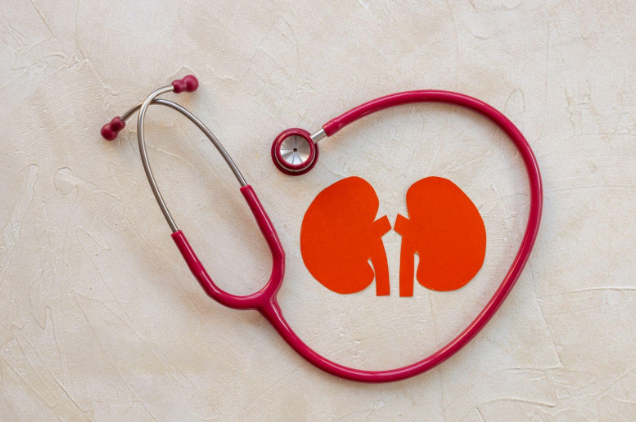Can Ozempic Reduce Risks from Chronic Kidney Disease in Diabetes Patients?

Chronic kidney disease (CKD) is one of the most serious complications of type 2 diabetes. It affects millions of people worldwide and increases the risk of kidney failure, heart disease, and premature death. Managing CKD in diabetic patients has always been challenging, as high blood sugar levels contribute to kidney damage over time.
Recent advancements in diabetes treatment offer new hope. The
U.S. Food and Drug Administration (FDA) has approved Ozempic (semaglutide) to reduce the risk of kidney disease progression and cardiovascular death in adults with type 2 diabetes and CKD. This approval is based on clinical evidence showing that Ozempic helps manage blood sugar and provides protective benefits for kidney health.
Ozempic and Its Mechanism
Ozempic is a medication that belongs to a class of drugs known as glucagon-like peptide-1 (GLP-1) receptor agonists. It mimics the natural GLP-1 hormone in the body, which plays a key role in blood sugar regulation. By activating GLP-1 receptors, Ozempic helps lower blood glucose levels, reduces appetite, and slows digestion.
Beyond its effects on blood sugar, it has been shown to protect the kidneys by reducing inflammation, improving blood flow, and lowering the risk of kidney-related complications. These effects make it a promising option for patients with type 2 diabetes who are at risk of CKD progression.
FDA Approval and Clinical Evidence
The FDA’s approval of Ozempic for CKD risk reduction is based on findings from the FLOW phase 3b clinical trial. This study included 3,533 adults with type 2 diabetes and CKD who were treated with a once-weekly 1 mg dose of Ozempic. The results showed a 24% reduction in the risk of kidney disease worsening, kidney failure, and cardiovascular death compared to a placebo group.
The trial’s findings highlight the medication's potential as a dual-purpose treatment—managing blood sugar while also slowing kidney disease progression. Given that CKD significantly increases the risk of heart disease in diabetic patients, this approval represents a major step forward in improving outcomes for those affected by both conditions.
Implications for Patients with Type 2 Diabetes and CKD
For patients living with type 2 diabetes and CKD, the approval of Ozempic provides a new treatment option that addresses multiple health concerns. Managing diabetes effectively can help prevent or slow the progression of kidney disease, reducing the need for dialysis or kidney transplantation in the future.
Additionally, CKD increases the risk of heart attacks and strokes, making cardiovascular protection an integral part of treatment. Ozempic’s ability to lower the risk of cardiovascular events, in addition to preserving kidney function, makes it a valuable option for healthcare providers managing diabetes and CKD together.
Recommended Usage and Dosage
Patients with type 2 diabetes and CKD should follow their doctor’s instructions when starting Ozempic. The recommended starting dose is 0.25 mg once weekly for four weeks, which helps the body adjust to the medication. After this period, the dose is increased to 0.5 mg once weekly. If further glucose control is needed, the dose may be increased to 1 mg once weekly after at least four weeks on the lower dose.
It is essential for patients to take the medication as prescribed and to monitor their blood sugar levels regularly. Doctors may also recommend lifestyle changes, such as a balanced diet and regular exercise, to improve overall health outcomes alongside medication use.
Safety Considerations
While Ozempic provides significant benefits, it is important to be aware of potential side effects. Some of the most common side effects include nausea, vomiting, diarrhea, and constipation. These symptoms are usually mild and improve as the body adapts to the medication.
In rare cases, it may increase the risk of more serious conditions, such as pancreatitis or diabetic retinopathy complications. Patients should notify their
healthcare provider if they experience severe stomach pain, vision changes, or persistent gastrointestinal issues.
Ozempic is not recommended for individuals with a history of medullary thyroid carcinoma or those with multiple endocrine neoplasia syndrome type 2. Patients should discuss their medical history with their doctor before starting treatment to check if Ozempic is a safe option for them.
Comparing Ozempic to Other CKD Treatments
Traditional treatments for CKD in diabetic patients include blood pressure medications, such as angiotensin-converting enzyme (ACE) inhibitors and angiotensin II receptor blockers (ARBs), which help protect kidney function. Sodium-glucose co-transporter-2 (SGLT2) inhibitors are another class of drugs that have been shown to slow CKD progression.
Ozempic adds another layer of protection by specifically targeting blood sugar levels while also reducing inflammation and oxidative stress in the kidneys. Its dual action makes it a strong complement to existing CKD treatments. However, healthcare providers will assess individual patient needs when determining the best treatment plan.
Future Research and Outlook
With its FDA approval, Ozempic is expected to become a widely used treatment for diabetic patients at risk of CKD. Ongoing research will continue to explore its long-term benefits and potential applications for other kidney-related conditions.
Healthcare professionals are optimistic that the addition of Ozempic to CKD treatment strategies will improve the quality of life and long-term health outcomes for many patients. As new medications and research developments emerge, managing diabetes-related kidney disease will become more effective, offering hope to millions of people worldwide.
If you or a loved one is managing diabetes and kidney disease, expert care can make all the difference. At
Metropolitan Kidney Centers, our team provides advanced treatments and personalized care to help protect your kidney health and improve your quality of life.
Schedule a consultation today and take the next step toward better kidney care.















